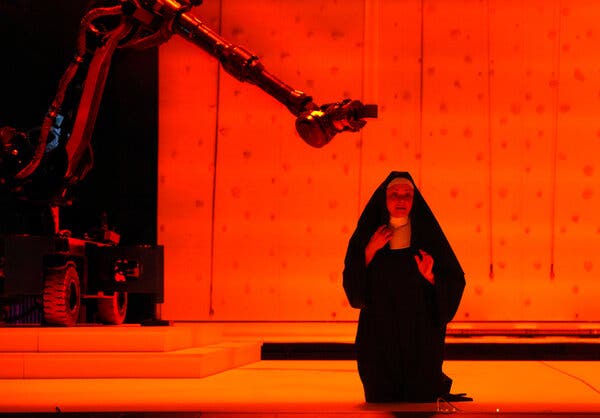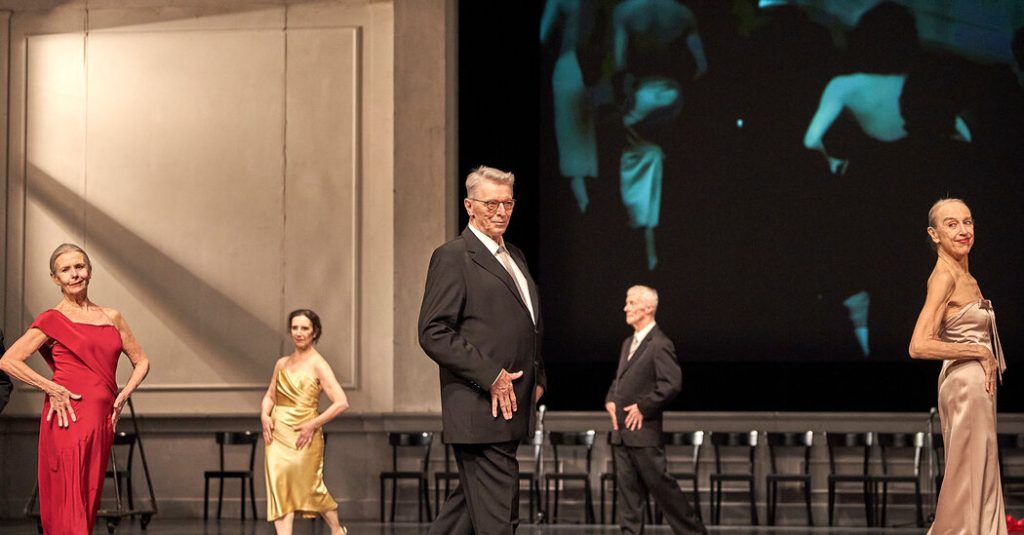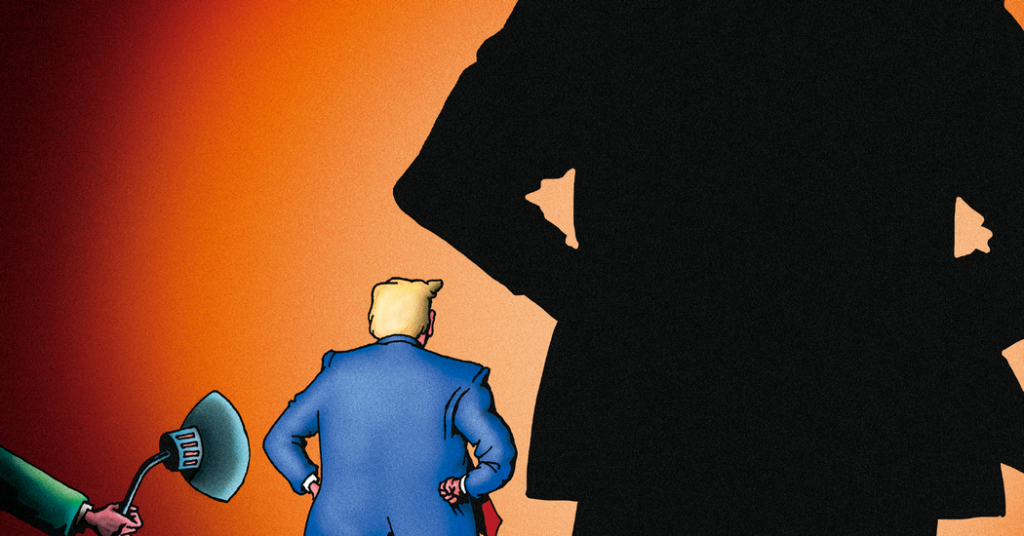In this year’s Theatertreffen, the annual Berlin festival showcasing the best theater from the German-speaking world, two of the 10 selected works — narrowed down from 600 by a jury — are choreography-led productions where bodies, rather than mouths, do most of the talking.
The first of these, “Sancta,” is the brainchild of the Austrian choreographer, director and performance artist Florentina Holzinger. Like all her shows — including “Tanz,” which played earlier this year at NYU Skriball in New York — it is comes with trigger warnings, this time for blood, needles, “self-injurious acts” and sexual violence.
Holzinger, who will represent Austria at next year’s Venice Biennale, is known for traversing dance, theater and visual art, and “Sancta” is her first foray into classical music. She has reworked Paul Hindemith’s scandalous 1922 one-act opera “Sancta Susanna,” about a nun tormented by forbidden desire, to critique the patriarchal structures of the Roman Catholic church. When “Sancta” played in Stuttgart, Germany, last year, the opera house there said some nauseated audience members needed medical attention, and in Vienna, Austrian bishops denounced the show as a “disrespectful caricature.”
At the Volksbühne in Berlin, “Sancta” opens with a rendition of Hindemith’s score by three wild-eyed singers in habits before morphing into a provocative variety show.Naked performers kiss, grope, and grind against a towering metal crucifix. Roller-skating nuns glide along a halfpipe and karate kick suspended metal sheets. In one stomach-churning scene, a strip of skin is sliced from a performer’s chest, fried and fed to another cast member in a techno-scored tableau evoking the Last Supper.

Florentina Holzinger’s “Sancta” starts by reworking a 1922 opera about a nun tormented by forbidden desire and morphs into a provocative variety show.Credit…Nicole Marianna Wytyczak
If Holzinger’s intent is to shock, she succeeds — but her efforts also backfire. The relentless barrage of subversive scenes means that, over the show’s nearly three-hour run time, it’s easy to become desensitized. Its most powerful moments lean into topical humor, rather than excess: When a performer with dwarfism walks onstage dressed in papal robes and dryly declares, “It’s official,” she elicits big laughs from the audience. (It was the day of Pope Leo XIV’s election.) Later, the performer proclaims herself the first lesbian pope, to more enthusiastic laughter.






